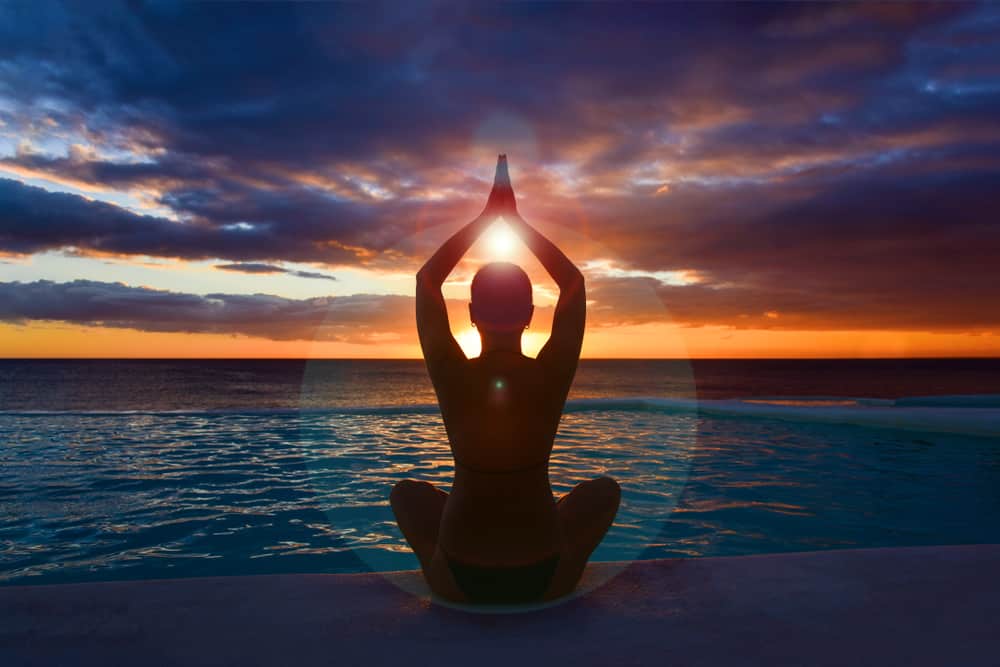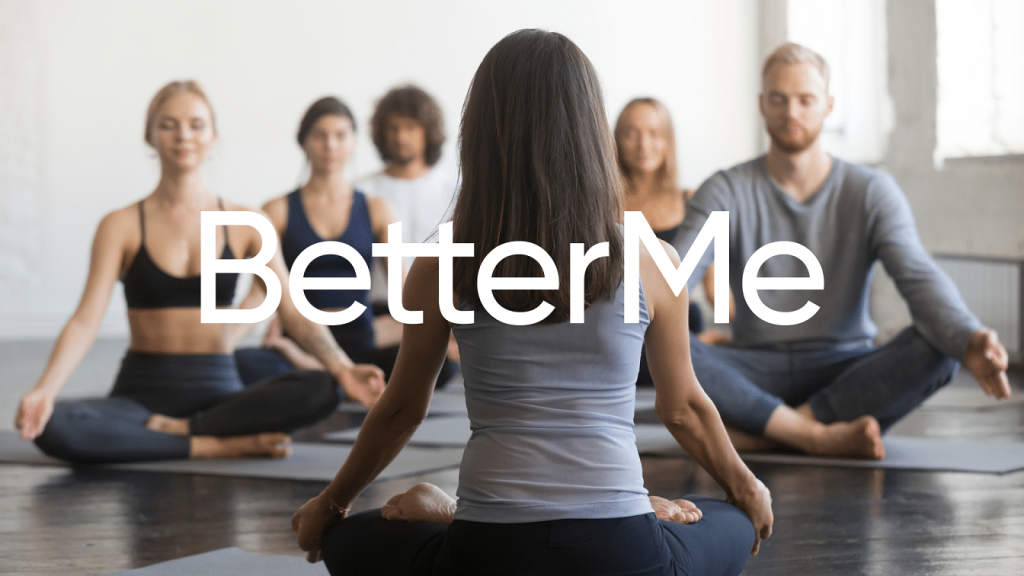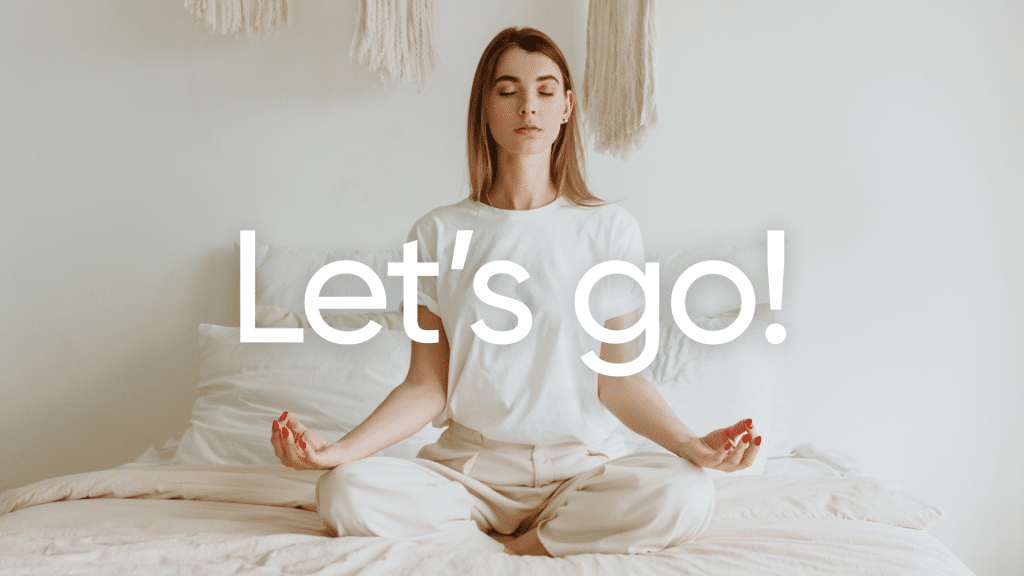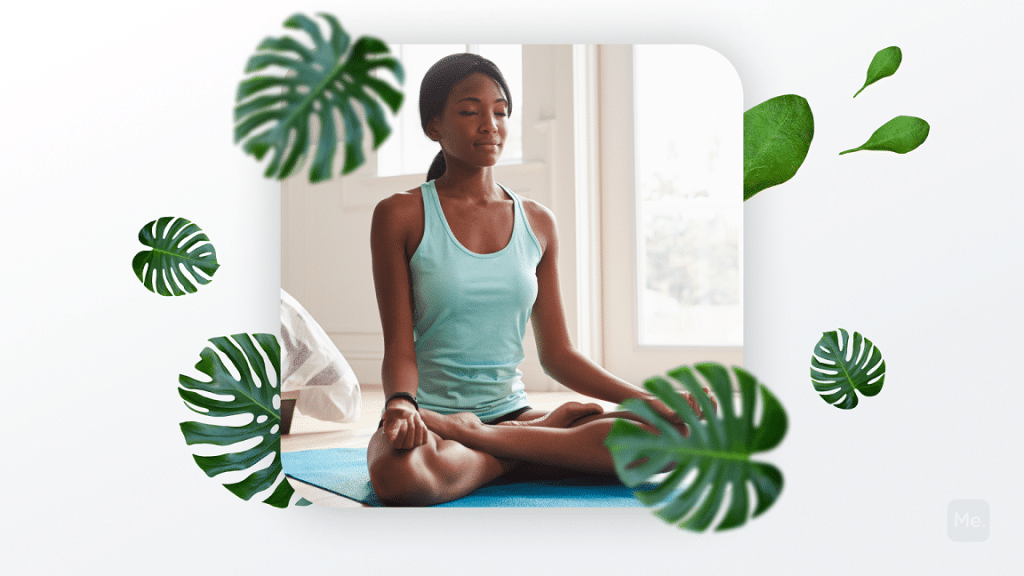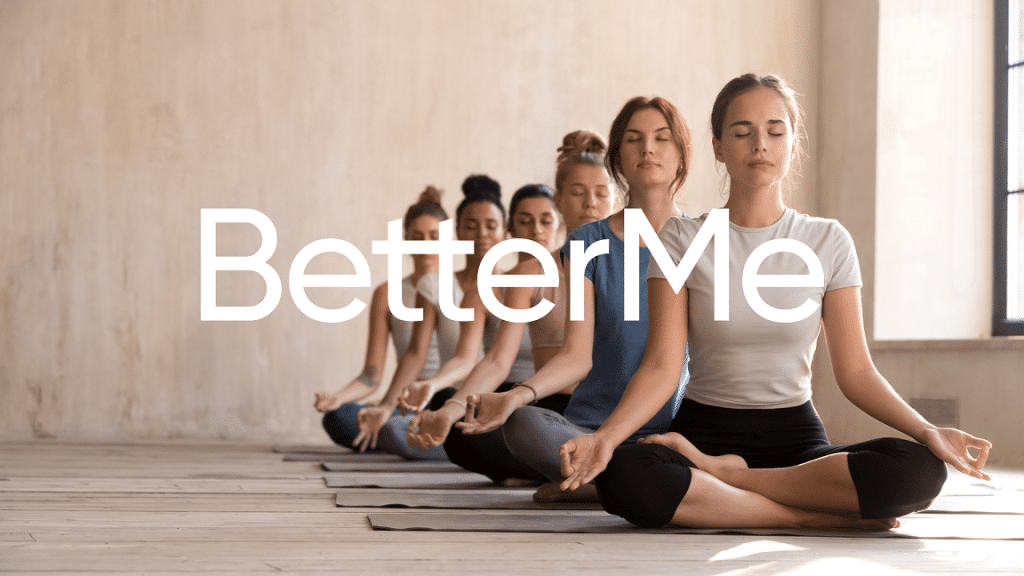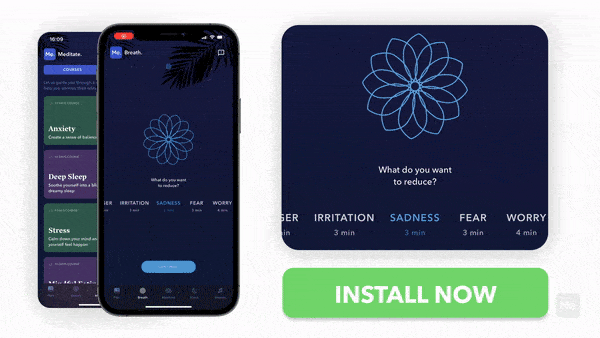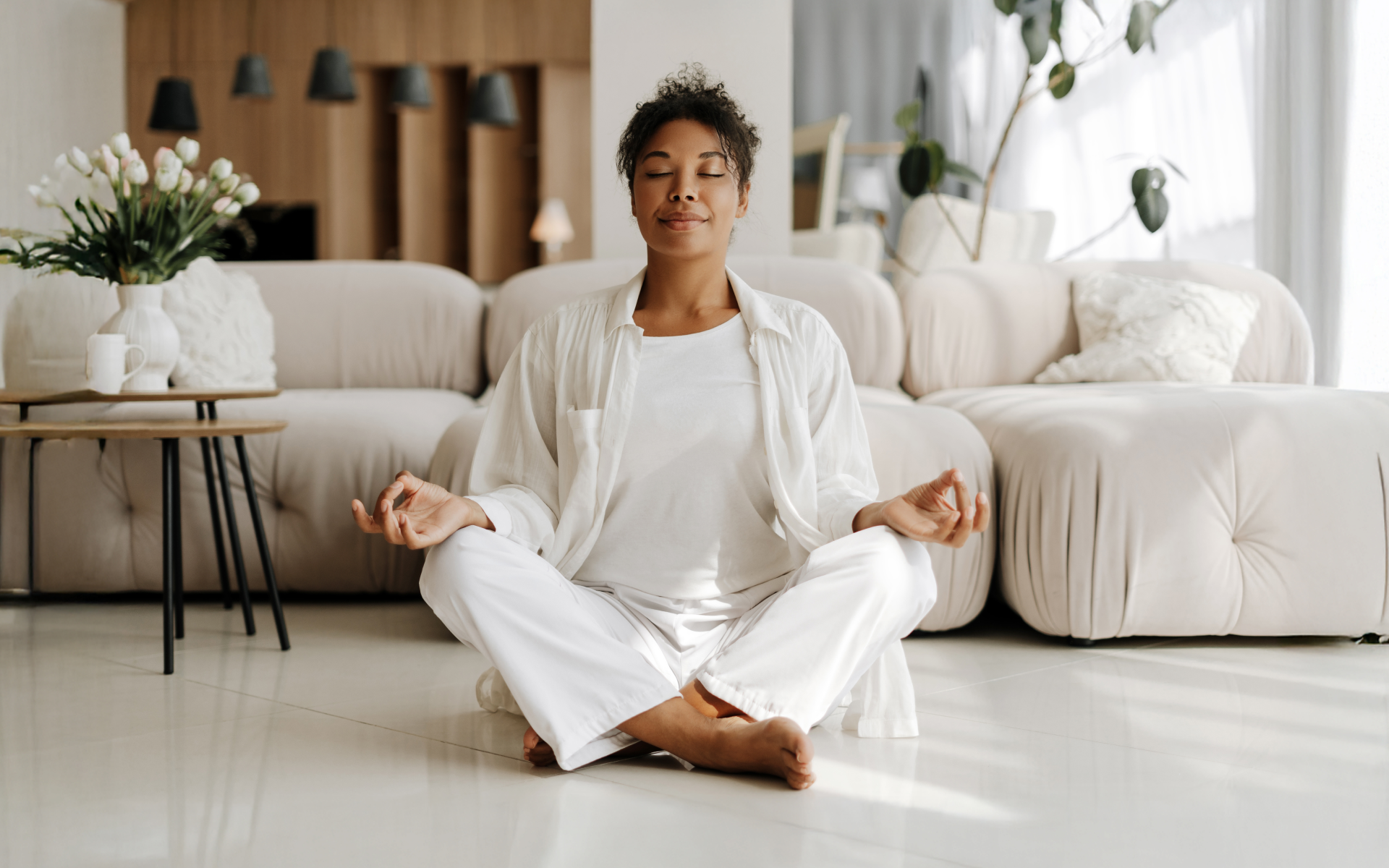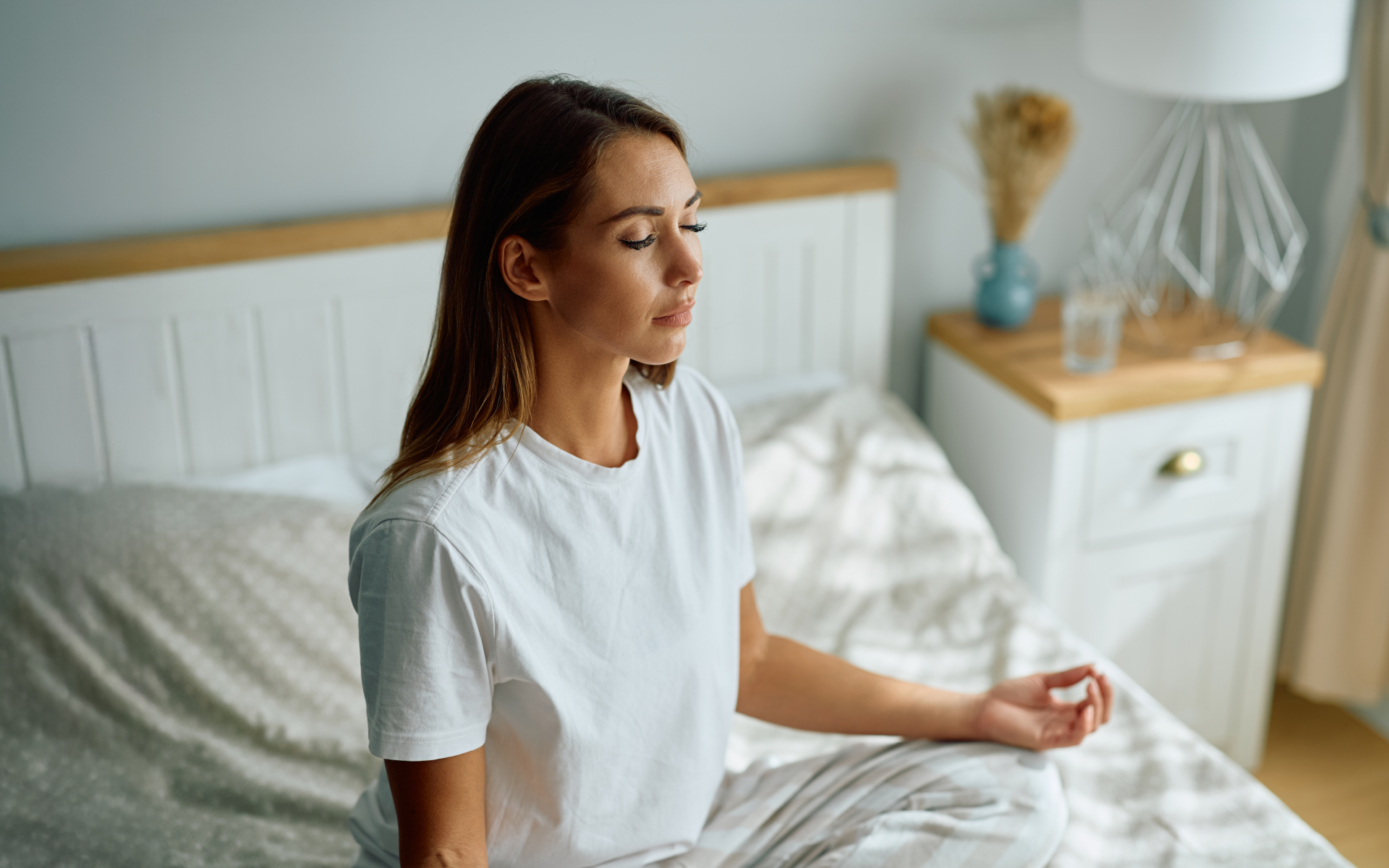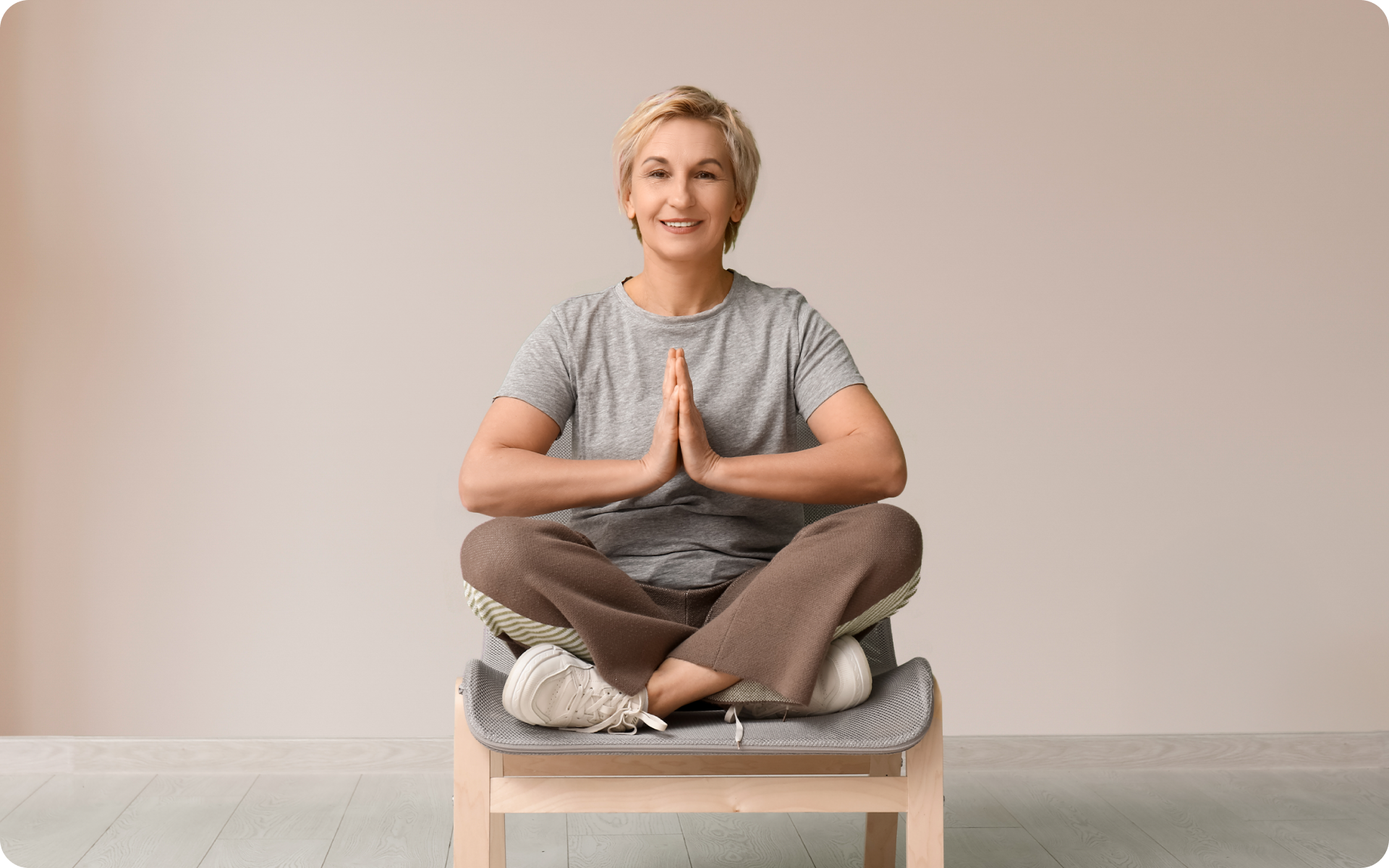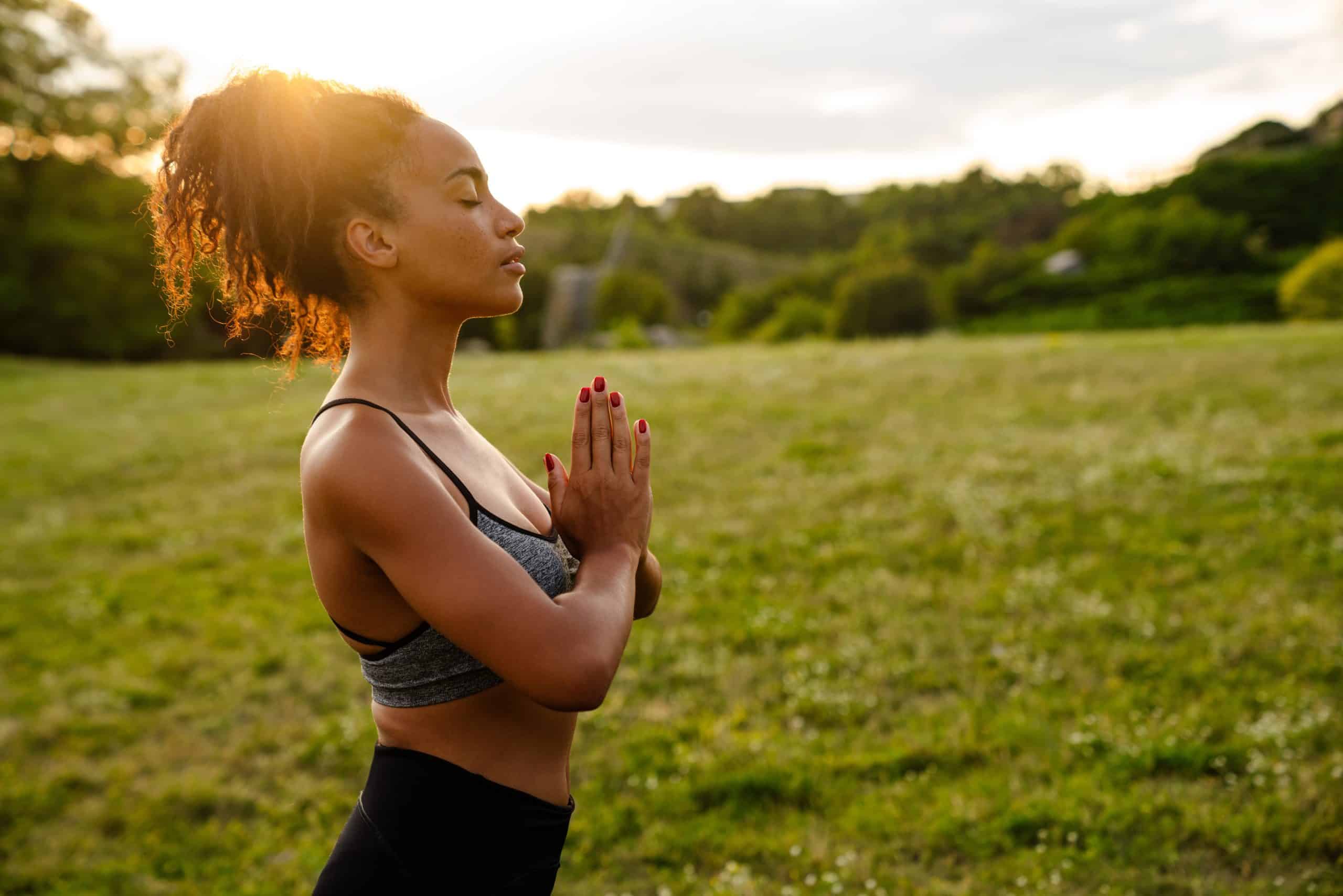Dark meditation is a reflection technique that many, beginners and advanced practitioners alike, may not have heard about. Like its name, it is a practice shrouded in darkness that may leave many people apprehensive about it.
If you are curious about this topic and its benefits, keep reading this article to find out more about dark room meditation, its benefits, how to learn dark meditation for daily practice, how to optimize a dark room for meditation, and much more.
What Is Dark Meditation?
Also known as dark room meditation or dark therapy, it is a practice of reflection that is often done in a quiet and dark space away from sunlight or artificial light. The good thing about dark meditation is that it can be easily done from the comfort of your home, or you many choose to attend a dark therapy retreat that has therapists or guardians who can guide you through this process (1).
What Is The History Of Dark Meditation?
This technique is said to originate from the Chinese religion of Taoism. While today people use dark rooms, traditionally, Taoists would use caves to meditate. They would use their time in these dark caves to try and experience higher states of the mind and celebrate Yin, the divine feminine aspect of life (9).
Read More: Meditation Styles: Which One Speaks To You Spiritually The Most?
Is Dark Meditation The Same As Dark Energy Meditation?
No, it is not. As stated above, dark meditation is, in layman’s terms, mediating in a dark quiet room. On the other hand, dark energy meditation is slightly more complex. Those who practice it also refer to it as dark matter meditation and would like you to know that it is in no way related to dark, evil or negative energy.
Instead, dark matter meditation practitioners use dark matter, available freely in the universe and in our mind’s subconscious to manifest their hearts’ desires fast. They believe that this dark energy helps their manifestations arrive to them faster than if they were to use other meditation techniques (6).
If you would like to get more scientific about it, here are some details about dark matter and dark energy. According to Nasa, about 68% of our universe is dark energy, 27% of it is dark matter and the remaining 5% is everything else – the earth and all other things ever observed by NASA’s satellites and other instruments (4).
While we may not see dark matter with our eyes, it is a mysterious, non-interacting substance in the Universe that is composed of particles that do not absorb, reflect, or emit light, so they cannot be detected by observing electromagnetic radiation (5).
Unlike dark meditation, dark energy meditation does not require a dark room. In it, you close your eyes, involve the use of chakras, especially the crown chakra, and the visualization technique to imagine yourself in space surrounded by all the planets while being sucked into and enclosed in the cold of the black matter as you manifest your desires to the universe (6).
With stress being a constant presence in our lives, taking time to process emotions, decompress and get into the right frame of mind is absolutely crucial. With BetterMe: Meditation & Sleep app your mental health is in good hands! Start using it now!
What Are The Benefits Of Dark Zen Meditation?
The biggest benefits of dark meditation are mostly related to the body’s release of melatonin. Melatonin is a hormone released in response to darkness (13). It is produced in the brain, specifically in the pineal gland, a pea-sized gland found just above the middle of your brain.
Where your brain produces melatonin, the hormone can have some of the following benefits in the body:
-
Can Prevent The Rapid Growth Of Cancer Cells
A scientific review published online in 2017 claimed that this hormone could be used as a prevention and treatment of several cancers, such as breast cancer, prostate cancer, gastric cancer and colorectal cancer (15). It reduces the size of these cancer tumors and helps improve the survival rates of patients.
-
Can Help You Sleep Better
In 2013, a review of different scientific studies encouraged the use of this hormone in cancer patients suffering from sleep-wake and mood disturbances because they noticed that it registered low toxicity levels in these patients (24).
-
Helps Relieve Chronic Pain (14)
1. Migraines
A study involving 34 patients revealed that taking about 3 mg of melatonin each night before sleep can decrease the frequency, intensity, and duration of pain in migraine patients. Another study also showed that participants who took the synthetic agonist of melatonin, agomelatine for 3 months experienced a decrease in migraine attack frequency and duration.
2. Cluster Headaches
In one study, participants suffering from cluster headaches were divided into two groups, one receiving 10 mg of melatonin every day before sleep for 2 weeks while the other only received a placebo. The results from this revealed that those who took the hormone experienced a decrease in the intensity and frequency of these headaches.
3. Tension Headaches In Children
A study involving 21 participants all taking 3 g of melatonin before sleep for 3 months showed that 14 of the 21 reported a 50% or more decrease in the pain syndrome intensity.
4. Chronic Back Pain
A study done on 178 patients aged 40 to 65 years old revealed that melatonin can help decrease pain levels both in motion and at rest. Not only did they have less pain, but they also felt a decrease in anxiety and depression, and could sleep better.
5. Fibromyalgia
This is a disorder characterized by widespread musculoskeletal pain accompanied by fatigue, sleep, memory and mood issues. Some studies have shown that this hormone may be effective in treating this pain. Not only does this help with the pain, but it also helps relieve the sleep problems and fatigue associated with this illness (10).
-
Helps With The Treatment Of Irritable Bowel Syndrome
This is a disorder that affects the large intestine. It causes symptoms such as cramping, abdominal pain, bloating, gas, and diarrhea or constipation, or both. One study said that melatonin can be used as a treatment for IBS because (16):
- It has analgesic effects which may help to alleviate abdominal pain and influence the sensation of abdominal distention in IBS patients.
- It has regulatory effects on gastrointestinal tract motility and sensation which may improve the bowel habits and alleviate abdominal pain or distention in IBS patients.
- Can help with sleep disturbance in these patients.
- Has benefits of mood regulation and anti-stress effects which could help alleviate the abnormal psychological parameters observed in IBS patients.
As seen above, melatonin is often produced in the dark and thus dark meditation will help you with the extra production of this hormone in the body. Dark room meditation has also been said to have successfully helped with the treatment of mania in bipolar depression and chronic fatigue syndrome (20).
-
May Help You Lose Weight
A study done on rats by researchers from the University of Granada, Madrid and the University of Texas revealed that this hormone may help with weight loss. According to the results, melatonin does this by increasing the amount of ‘good fat’ aka brown adipose tissue (BAT) in the body. Unlike bad fat, brown adipose tissue (BAT) uses energy rather than storing it. It burns energy for thermogenesis, increasing your metabolism and decreasing visceral fat which is harmful and causes weight gain, especially around the abdomen (19).
Read More: Weight Loss Mantra: Get Rid Of Emotional Eating With This Simple Practice
Can You Do Dark Room Meditation Daily?
Yes, you can. Those who can easily afford retreats tend to spend a week or two in darkness which some say is the best way to receive all the benefits of dark meditation therapy (9). If you cannot afford to take off for a whole week to a retreat, try practicing dark room meditation at home.
You can do this by:
- Switching off, or significantly dimming your lights for an hour before sleeping every night.
- Keep your TV in the living room and not the bedroom.
- Time yourself to switch off your phone at least 30 minutes before bed, and stay silently in bed reflecting on your day, your goals, and practicing gratitude.
- Set your alarm to ring 10 or 20 minutes before you officially have to wake up. Once you switch it off, sit up in bed – do not switch on your lamp or any other light – and silently meditate in the darkness of your room every day.
How To Learn Dark Meditation?
If you are interested in practicing darkness meditation, here is what to do:
1. Consider How You Feel About Darkness
For most people, being trapped in the dark is not a good feeling. They associate it with negative emotions like fear or even death. Also if you are afraid of the dark then this is not the option for you.
2. Bring Up Positive Associations With The Dark
For you to feel comfortable in the dark, it is best that you cultivate positive emotions regarding being in the dark. Think about the blackness as a hug, or as a source of life – in regard to creation.
3. Clothing
Meditation can be done in any clothing but loose clothing such as flowing robes, yoga pants, and loose-fitting sweat suits are preferable as they can prevent numbness in your limbs.
4. Position
Choose a position that is the most comfortable for you. You may choose to either, lie down on the floor, on your back, sit upright in a chair, with your legs uncrossed and hands resting on your thighs, or sit on the floor in a crossed-legged position with left hand resting palm up on your lap and right hand resting palm up in your left hand.
5. Breathing Exercises
Breathe in slowly through your nose and exhale slowly through your mouth. Notice how your body expands with each inhales and how it contracts with every exhale. Take note of how your muscles begin to relax as well.
The Step-By-Step Instruction
- If you are seated up, adjust your position so that your spine is straight, your body relaxed, your hands resting gently in your lap. You will probably want to close your eyes and shut out all the distractions of the light.
- Pay attention to your other senses. Do a body scan and release the tension from your muscles. Take notice of all the sounds around you, focus on your thoughts and let them float away. Do not hold on to them but let them float away.
- Now imagine your body and mind are filled with darkness and silence. Take comfort in the stillness and rest into this inner darkness, knowing that you are safe in this moment. Simply be and keep breathing in and out.
- From here, you can manifest or visualize your life with what you would like it to be. You may also combine dark meditation with other techniques such as mantra meditation, love-kindness, gratitude, chakra meditation, etc.
- Do this for however long you feel comfortable – not more than 20 minutes then come down, keep breathing, open your eyes, stand up and go write down your thoughts, think on them and have some tea.
If you are wondering how to optimize a dark room for meditation, be sure to practice this exercise at least once a day, two to three times a week to help you relax, grow spiritually, sleep and deal with pain and other factors.
Something tells us you often forget to put all the everyday hustle and bustle on hold and simply concentrate on yourself. It’s time to straighten out your priorities! Take a moment to heal, process your emotions, ground yourself, release all the pent-up tension and recharge with the BetterMe: Meditation & Sleep app before getting back into the race of life!
How Healthy Is The Dark Room Meditation?
Some claim that dark meditation is quite healthy, mostly due to its helping in the release of melatonin. However, these sentiments do not come from any scientific studies and thus this technique should be approached with caution.
On the other hand, if we are looking at the act of meditation alone, it is a generally safe practice, but has also been associated with some psychological side effects which some going into the practice may not be aware of. Some side effects of meditation include (22, 3):
-
Feelings Of Depersonalization
When you are meditating, you are asked to let go and not think about anything. While thoughts and images may filter through your mind, you are required to not hold on to either one. This can lead to depersonalization, which is a persistent feeling of observing oneself from outside one’s body.
The feeling makes you have a sense that your surroundings aren’t real. This can bring up feelings of fear and emptiness because you may end up feeling numbness in your mind and body, cannot attach emotions to memories and feeling as if you can’t control what you do or say (23).
-
Post-Traumatic Stress
Those who go to therapy understand the need to sit down with your negative emotions and experiences and critically examine them, thus allowing you to heal and move on from them. However, for most people, this is not a good thing. Remembering negative emotions and experiences makes us sad and thus we’d rather bury them and forget.
During meditation, most people find themselves revisited by memories of bad experiences that happened in their lives. Because the stress from this was not dealt with at the time, you may find yourself, now, experiencing the same anger, fear, sadness, or grief that happened then as you reflect. If you are practicing dark meditation, being in a pitch black room alone can worsen these feelings, especially the fear.
-
Depression
While meditation is praised for its benefits in fighting depression, in some cases, some people have reported feeling more depressed after a session (8). Dark room meditation may worsen the situation. Since you are stuck in a dark quiet space, you are experiencing a form of light deprivation, which in itself has been linked to depression.
A 2008 study saw scientists put rats in the dark for six weeks. At the end of the study, the rats were not only found to portray depressive behaviour, be suffering from damage in brain regions known to be underactive in humans during depression, but the neurons in the brain responsible for the production of norepinephrine, dopamine and serotonin, were dying. These hormones are well known for their relation to emotion, pleasure and cognition (12).
In humans, staying in the dark for too long may lead to a disruption of your body clock. The circadian rhythm not only helps you sleep better but can also cause mood swings if it is not exposed to natural light, leading to depressive episodes (11).
-
Disillusionment
This is a feeling of disappointment in yourself after reflection and coming to the realization that you or your actions are not as good as you thought they were.
-
Psychosis
This is a mental disorder characterized by a disconnection or loss of touch from reality. Some symptoms of psychosis include delusions, hallucinations, talking incoherently, and agitation (18), which can be worsened by dark meditation due to being cut off from a source of light. In some cases, participants of a meditation study have found themselves hospitalized for psychosis (22).
In some cases, research papers and study reviews have found that some people who practice meditation report an increase in anxiety, panic attacks, confusion, and suicidal thoughts (7, 17).
What Is Dark Night Meditation?
While it is not related to dark meditation, dark night in meditation is a project set up by a psychology professor from Brown University Medical School who works with former meditation practitioners who have experienced negative side effects from this reflection exercise (2).
As seen above, contemplation, while hailed as a phenomenal for relaxation, sleep, mental clarity, etc. has quite the disturbing underbelly. Persons involved in this project all have stories of the negatives of this practice, all ranging from, suicidal thought, a loss of colour in and meaning of life, hearing voices, terror, and more (21). Through this project, the professor is looking to help people while documenting, analyzing, and publicizing accounts of the adverse effects of contemplative practices.
The Bottom Line: Is Dark Meditation Worth It?
The verdicts about dark room meditation differ from person to person. Some believe that it is a good thing with multiple benefits while others do not see it as beneficial at all. However, if you have been practicing meditation for a while and are not afraid of the dark, you may consider giving it a go. For beginners, trying a retreat may be better so you can get a better grasp of dark meditation through a guided session.
DISCLAIMER:
This article is intended for general informational purposes only and does not address individual circumstances. It is not a substitute for professional advice or help and should not be relied on to make decisions of any kind. A licensed physician should be consulted for diagnosis and treatment of any medical conditions. Any action you take upon the information presented in this article is strictly at your own risk and responsibility!
SOURCES:
- A Week of Darkness, for Your Health (2018, theatlantic.com)
- Buddhist Meditation and the Dark Night of the Soul (2018, learnreligions.com)
- Dangers of Meditation (2016, psychologytoday.com)
- Dark Energy, Dark Matter (n.d., science.nasa.gov)
- Dark Matter (n.d., starchild.gsfc.nasa.gov)
- Dark Matter Meditation To manifest Your Deepest Desires Fast! (2017, discover.hubpages.com)
- Dark Side of the Meditation: How to Dispel this Darkness (2019, researchgate.net)
- Does meditation carry a risk of harmful side effects? (2017, nhs.uk)
- Down the Rabbit Hole: How a Dark Room Stimulates DMT and Profound Experiences (2019, medium.com)
- Herbs and Supplements for Fibromyalgia (2020, webmd.com)
- How Light Deprivation Causes Depression (2008, scientificamerican.com)
- Light deprivation damages monoamine neurons and produces a depressive behavioral phenotype in rats (2008, pnas.org)
- Melatonin: What You Need To Know (2019, nccih.nih.gov)
- Melatonin in Chronic Pain Syndromes (2016, ncbi.nlm.nih.gov)
- Melatonin for the prevention and treatment of cancer (2017, ncbi.nlm.nih.gov)
- Melatonin for the treatment of irritable bowel syndrome (2014, ncbi.nlm.nih.gov)
- Mindfulness and meditation can worsen depression and anxiety (2020, newscientist.com)
- Psychosis and Psychotic Episodes (2019, webmd.com)
- Study explains anti-obesity effects of melatonin (2018, news-medical.net)
- Summary of Dark Therapy (2019, examine.com)
- The Dark Knight of the Soul (2014, theatlantic.com)
- The Dark Side of Meditation: How to Avoid Getting Stuck with Pain From the Past (2018, yogajournal.com)
- Understanding Depersonalization and Derealization Disorder (2019, healthline.com)
- Update on the role of melatonin in the prevention of cancer tumorigenesis and in the management of cancer correlates, such as sleep-wake and mood disturbances: review and remarks (2013, pubmed.ncbi.nlm.nih.gov)
